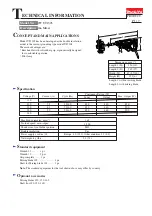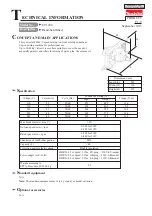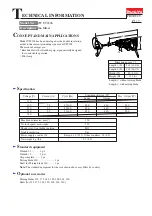
172.884UK User Manual
Introduction
Thank you for purchasing the qtx QSM-4USB mixer. This product has been designed
to provide reliable and accurate performance as part of a sound system or recording
setup. Please read and follow the instructions in this manual to get the best from this
item and avoid damage through misuse.
Warning
To prevent the risk of fire or electric shock, do not expose any of the components to
rain or moisture. If liquids are spilled on the casing, stop using immediately, allow
unit to dry out and have checked by qualified personnel before further use.
Avoid impact, extreme pressure or heavy vibration to the case
No user serviceable parts inside. Refer all servicing to qualified service personnel.
Keep away from direct sunlight, heat sources, damp or dusty environments
Use a soft cloth with a neutral detergent to clean the casing as required
Do not use strong solvents for cleaning the unit
Connections
Before using this unit, make sure that the AC Adaptor
is the correct voltage.
The unit is fitted with 2 unbalanced main output RCA connections for an amplifier or
recording equipment.
The
MIC L (15)
and
MIC R (16)
inputs each accept a microphone on 6.3mm jack.
On the rear panel are 3 stereo inputs – Line 1/Phono 1, Phono 2 and CD
LINE 1/PHONO 1 INPUT (17)
will accept turntable input or can be switched to
accept line level signal (CD, mp3 player, PC etc.)
PHONO 2 INPUT (18)
will accept turntable input.
CD INPUT (19)
will accept any line level input such as a CD, mp3 player or PC.
An
EARTH SCREW (21
) for earthing turntables to is located on the rear panel.
A
USB
socket
(22)
on the top panel accepts a USB storage device for playback of
digital audio tracks stored on the device.
Headphones can be plugged into the front panel mounted
HEADPHONE (14)
jack.
Operation
POWER ON: Once you have made all the equipment connections to your mixer, turn
down the rotary
VOLUME (11)
control fully and switch on the
POWER BUTTON
(23)
. The power will turn on and the power LED will illuminate.
Increasing the VOLUME control gradually increases the output level until the desired
volume is reached. This can be checked with a known input source with its channel
level up full.






















